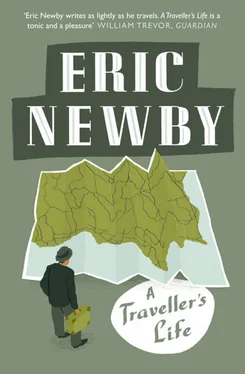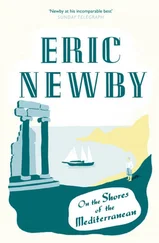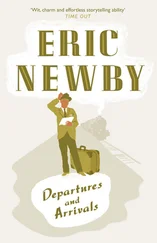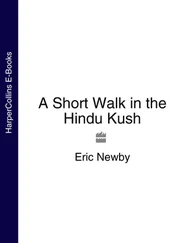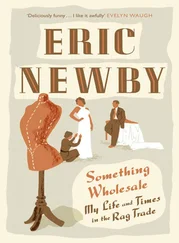That day, too, much nearer home, while I was taking my first nourishment, as it were, in the open air, French Army units with heavy guns were rumbling across the Rhine bridges in order to force the Germans to ratify the peace treaty which they had signed at Versailles in June; and in the same issue of The Times which carried the headline about ‘THE GREAT PEACE CHRISTMAS’, there were other headlines such as ‘GUNS ACROSS THE RHINE’ and ‘WAR IMMINENT’, although who was to fight another war with millions killed and wounded, armies in a state of semi-demobilization, and millions more dying or soon to die from sickness and starvation was not clear. Nevertheless, that weekend, the only thing, theoretically, that stood between the protagonists and another outbreak of war, was the Armistice, signed in a French railway carriage parked in a wood, thirteen months previously, so that, equally theoretically, it would simply have meant carrying on with the old one. That weekend, too, the Americans quitted the peace conference.
There was, altogether, a lot about death in the papers that Saturday. It was as if Death the Reaper, an entity embodied by cartoonists in their drawings as a hideous, skeletal figure, and it would have been difficult to have lived through the last five years without thinking of death as such, had become dissatisfied with his efforts, had once again sharpened his scythe and was already cutting fresh, preliminary swathes through the debilitated populations of the vanquished powers, as if the great influenza epidemic, which reached its peak in Britain in March 1919, and which altogether killed more people in Europe than all the shot and shell of four and a half years of war, had not been enough.
In Britain, that Saturday, things were rather different. Bank rate was six per cent, exports were booming. On Friday, the US dollar closed at $3.90 to the pound. The only disquieting news that morning, and that was more or less a rumour, was that there was a possibility of a number of pits being forced to close in the South Wales anthracite fields.
Altogether, for many people that Saturday, life seems to have gone on much as it had done before the Deluge. Giddy and Giddy, House Agents, offered a luxuriously furnished town house, facing Hyde Park, with thirteen bed and dressing-rooms for £26.25 ($102.40) a week. Harrods announced Laroche champagne, 1911, the last vintage generally available (shipped) since the war, at £6.50 ($25.35) a dozen. Very old vintage port (Tuke Holdsworth) was £4.50 ($17.55) a dozen. Not advertised in The Times or the Daily Telegraph , but still listed in Harrods’ enormous current catalogue, (and for some years to come) under ‘Livery’, were red plush breeches for footmen.
Domestic servants were still comparatively inexpensive, although more difficult to find, than they had been before the war. That Saturday Lady Baldwin, of 37 Cavendish Square, advertised for a housemaid, ‘five maids and a boy kept, wages £28–£30 ($109–$117) a year’. And there were vacancies for live-in under nurses, at £25 ($97.50) a year, the price of a high-class baby carriage of the sort that my mother had acquired for me.
That Saturday, too, wholesale garment manufacturers, at what was, and still is, known as ‘the better end of the trade’, the sort of firm my father was a partner in, were advertising jobs in their workrooms for bodice and skirt makers at around £2.50 ($9.75) for a five-and-a-half-day, forty-nine-hour week (8.30 a.m. to 5.30 p.m. week-days, 8.30 a.m. to 12.30 p.m. Saturdays), £130 ($507) a year, which made the 50p spent on announcing my birthday seem hideously extravagant.
That Saturday some London fashion houses, including the then ultra-fashionable Lucile, in Hanover Square, were advertising for ‘Model Girls’, in emulation of Paul Poiret, the Parisian designer, who had just returned from the army and for the first time showed clothes on living models.
A sketch in The Times that Saturday shows that clothes were good-looking, if not positively saucy. Dresses, according to their fashion correspondent, were ‘ décolleté , sometimes dangerously low’, in brilliant colours, with tight, mid-calf-length skirts. Jet was high fashion for the evening: embroidered on coloured velvet, used for making girdles and shoulder straps. Feathers, which had been used for years for making headdresses for evening, were being replaced by flowers, ‘as little like nature as possible?’, although another couple of years were to pass before the Importation of Plumage (Prohibition) Act became law. The ultra-fashionable were already wearing the long, skimpy jerseys which were to become a sort of hallmark of the 1920s; but there was nothing about them in the papers the day I was born.
Yet in spite of all this display of what an American politician described as ‘normalcy’, ‘The Great War’, as it would still be referred to by the British far into the next one, although over, must have seemed terribly close to most people, as it still must do today to anyone reading some of the classified advertisements which appeared in the quality papers that Saturday. The request for a lady or gentleman to play once a week at a thé dansant in a hospital for shell-shocked officers. The offers to keep soldiers’ graves trimmed and lay headstones in the neighbourhood of Albert, Bapaume and Péronne – the dead had not yet been gathered together in communal cemeteries. The endless columns of advertisements inserted by ex-servicemen, under ‘Situations Wanted’ (there were 350,000 of them unemployed), part of the huge citizen army of the still living that was being demobilized into a world in which, in spite of there being whole generations of dead, there was not enough work for all. Such advertisements, inserted by ex-officers, warrant officers, petty officers, NCOs and men of superior education (the labouring classes did not advertise their services in this way), were some of them despairing, some of them pathetic, some of them hopeless:
Ex-Service Man. Loss of right arm, seeks situation as Window Dresser or Shopwalker.
Demobilized Officer. Aged 21, 4½ years’ service [my italics].
Good education. Left school to join up, therefore no
experience. Accept small salary until proficient.
Will anyone lend Demobilized Officer, DSO, just starting work again, £5000 [$19,500] for one year? Highest references.
Applicant desperately pressed by moneylenders. No Agents.
Write Box J.28.
Money-lenders were so numerous that they had whole classified sections to themselves. Most of them offered ‘immediate advances on note of hand alone’. Their advertisements make repulsive reading, even across such a gulf of years.
A far more prominent advertisement than any of these announced the setting up of what was called the Bemersyde Fund, opened by the Lord Mayor of London and the Right Honourable Lord Glenconner, ‘to acquire the estates of Bemersyde from its owner and have the same conveyed to Field-Marshal Earl Haig, a member of the well-known whisky distilling family, as a personal gift from the people of the British Empire – the consideration for the purchase being £53,700 [$209,430]’.
Altogether – leaving present for the headmaster (the Estates of Bemersyde), although he had not been a very good headmaster, the boys (or what was left of them, for it had been rather a rough school with a lot of mud in the playing fields) now going out into the world to seek their fortunes – there was a distinctly end-of-term feeling in the air. But in spite of this there was no singing of ‘Lord Dismiss Us With Thy Blessing’ as one would perhaps expect on such occasions and as there was at the schools I later attended. Possibly because the only songs the boys knew were not hymns but songs that had become dirges: ‘Pack Up Your Troubles’, ‘Tipperary’, ‘It’s a Long Long Trail A’Winding’ and ‘I Don’t Want To Join The Army’.
Читать дальше
